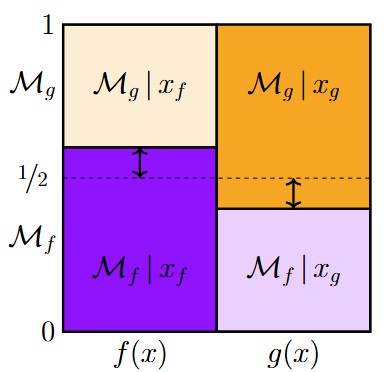Throughout his books, Bayesian godfather Sir Harold Jeffreys was in the habit of starting each chapter with an epigraph. Usually these epigraphs came from different sources, but not so for his 1935 geophysics book “Earthquakes and mountains”. The book has a total of seven chapters; here are the seven associated epigraphs:
For chapter 1, “Solids and Liquids”:
…but who attempts to eat an orange without first disposing of the peel, or what manner of a dwelling could be erected unless an adequate foundation be first provided?– Kai Lung’s Golden Hours, 144.
Although the purpose of the epigraph has eluded me, I do like it. The part about the orange is an apt response to those statisticians who wish to estimate parameters before assessing whether there is anything to estimate at all (see the earlier post here).
For chapter 2, “Earthquakes”:
As the Book of Verses indicates, ‘The person who patiently awaits a sign from the clouds for many years, and fails to notice the earthquake at his feet, is devoid of intellect’.– The Wallet of Kai Lung, 16
For chapter 3, “Gravity and the Shape of the Earth”:
How is it possible to suspend topaz in one cup of the balance and weigh it against amethyst in the other; or who in a single language can compare the tranquillizing grace of a maiden with the invigorating pleasure of witnessing a well-contested rat-fight?– Kai Lung’s Golden Hours, 258
I have often wondered this myself.
For chapter 4, “The strength of the Earth”:
It is well said that after passing a commonplace object a hundred times a day, at nightfall its size and colour are unknown to one’, replied Pe-Lung.
— Kai Lung’s Golden Hours, 196
For chapter 5, “Radioactivity and the Earth’s History”:
As to this, says the Wise One, ‘When two men cannot agree over the price of an onion, who shall decide what happened in the time of Yu?– Kai Lung’s Golden Hours, 76
This reminds me of C. S. Peirce, who found it remarkable that men who could not even foresee the next chess move by Morphy were nevertheless quite confident about the agenda of their preferred god.
For chapter 6, “The Bodily Tide and Tidal Friction”:
When heaven itself goes out of its way to set a correcting omen in the sky, who dare disobey?– Kai Lung’s Golden Hours, 116
For chapter 7, “The Mechanics of Geology”:
The matter is as long as The Wall and as deep as seven wells,’ grumbled Sheng-Yin, ‘and the Hoang-Ho in flood is limpid by its side.– Kai Lung’s Golden Hours, 115
You do not have to be a Bayesian statistician to conclude that Harold Jeffreys must have been a fan of the English author Ernest Bramah Smith (1868-1942), a recluse who wrote several books featuring the traveling Chinese storyteller Kai Lung. Although the Kai Lung books were popular at the time, I had never heard of them before. Taking the epigraphs as Jeffreys’s reading recommendation from beyond the grave, I quickly ordered “The Wallet of Kai Lung”. I have only just started to read this book, but it is certainly captivating and funny. It is also highly unusual in its style. Rather than try to describe it, I will instead provide an example. We find ourselves at a scene where the gentle and learned Ling, one of the book’s protagonists, disturbs two outlaws who were harassing a maiden:
Unsettled in their intentions at this unexpected action, the two persons turned and advanced upon Ling with whirling daggers, discussing among themselves whether it would be better to kill him at the first blow or to take him alive, and, when the day had become sufficiently cool for the full enjoyment of the spectacle, submit him to various objectionable tortures of so degraded a nature that they were rarely used in the army of the Emperor except upon the persons of barbarians.
References
Jeffreys, H. (1935). Earthquakes and mountains. London: Methuen & Co.
Bramah Smith, E. (1900). The wallet of Kai Lung.
About The Author




